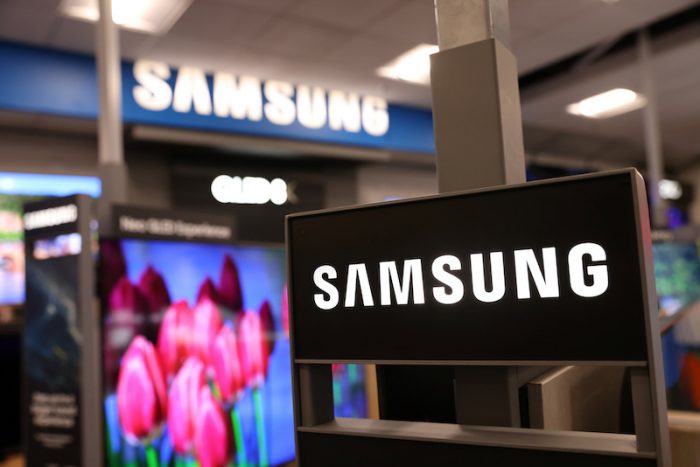Samsung Electronics says it expects its supply of memory chips will grow faster than its peers – as it plans to proceed with planned investments totalling tens of billions of dollars.
The South Korean tech giant is bucking the broader industry move to scale back output and spending – by rivals such as SK Hynix and TSMC – amid concern about a global recession.
It plans to invest 54 trillion won this year, including 47.7 trillion won ($34 billion) earmarked for its semiconductor and components business.
Samsung’s apparent confidence indicates it intends to use a sharp and sudden downturn in worldwide tech demand to consolidate its dominance in memory chips and catch up with bigger rival TSMC in contract chip manufacturing, analysts said.
The conglomerate also said on Thursday its de facto leader Jay Y Lee, who it says was behind its decision to make aggressive investments in contract chipmaking, was appointed as executive chairman.
ALSO SEE:
Samsung Heir Made Chairman a Year After Jail Release
‘Preparing for Recovery’
“We are not considering an artificial production cut,” Han Jin-man, executive vice president of memory business at Samsung, told analysts after posting a 31% plunge in quarterly profit.
“Market demand has contracted right now, but … we need to prepare for mid- to long-term demand recovery.”
Samsung said it did not expect much change to its 2023 memory chip investment plans, in contrast to smaller rival SK Hynix, which on Wednesday warned of an “unprecedented deterioration” in memory chip demand and slashed 2023 investment by more than 50%.
Earlier this month TSMC also cut its annual investment budget by at least 10% for 2022 and struck a more cautious note than usual on upcoming demand.
Samsung said geopolitical uncertainties were likely to dampen demand for semiconductors until early 2023. For NAND flash chips, Samsung forecast the market may not recover in 2023.
Even so, it said it would boost shipments of memory chips at a faster rate than its peers across the industry. Samsung does not publish specific details of its supply plans.
In the contract chip business, where Samsung is a distant No-2 behind TSMC, it expected record sales and operating profit this year.
“Samsung seems to be saying it will use this downcycle to push out other NAND flash firms like SK Hynix and Kioxia,” said Park Sung-soon, analyst at Cape Investment & Securities.
Shares in Samsung closed up 0.2% in afternoon trade, but SK Hynix shares tumbled 4.2%. The wider market was up 1.7%.
Shift to Advanced Manufacturing
Although Samsung’s fourth-quarter earnings are expected to dip further as memory chip prices continue to fall, Samsung will be better able to defend profits than peers due to economies of scale, analysts said.
Samsung is expected to keep capital expenditure cuts to a minimum in 2023 versus 2022 – at about 5% for memory chips – to continue its migration into more advanced manufacturing, which will initially curtail supplies of certain chips due to new production process, Daishin Securities analyst Wi Min-bok said.
This is in stark contrast from rivals SK Hynix or Micron Technology’s plan to potentially cut investment by more than 30% next year.
Samsung’s operating profit fell to 10.85 trillion won ($7.7 billion) for the July-September quarter, from 15.8 trillion won a year earlier, the first year-on-year decline in nearly three years as its chip business profit fell to 5.12 trillion won from 10.07 trillion won a year earlier.
That was in line with Samsung’s own estimate of 10.8 trillion won earlier this month. Revenue rose 4% to 76.8 trillion won.
Samsung said profit in its mobile business fell slightly to 3.24 trillion won from 3.36 trillion won a year earlier, as a market downturn was offset by firmer demand for high-end smartphones and newly launched wearables.
Samsung forecast 2023 mobile demand could recover slightly from 2022, and said it planned to focus on its flagship and foldable smartphones to harness comparatively robust appetite for premium products.
- Reuters with additional editing by Jim Pollard
READ MORE:
TSMC, Samsung Win Waivers; US Workers Ban Rocks China Firms
Chipmaker SK Hynix to Slash Investment as Recession Looms
























